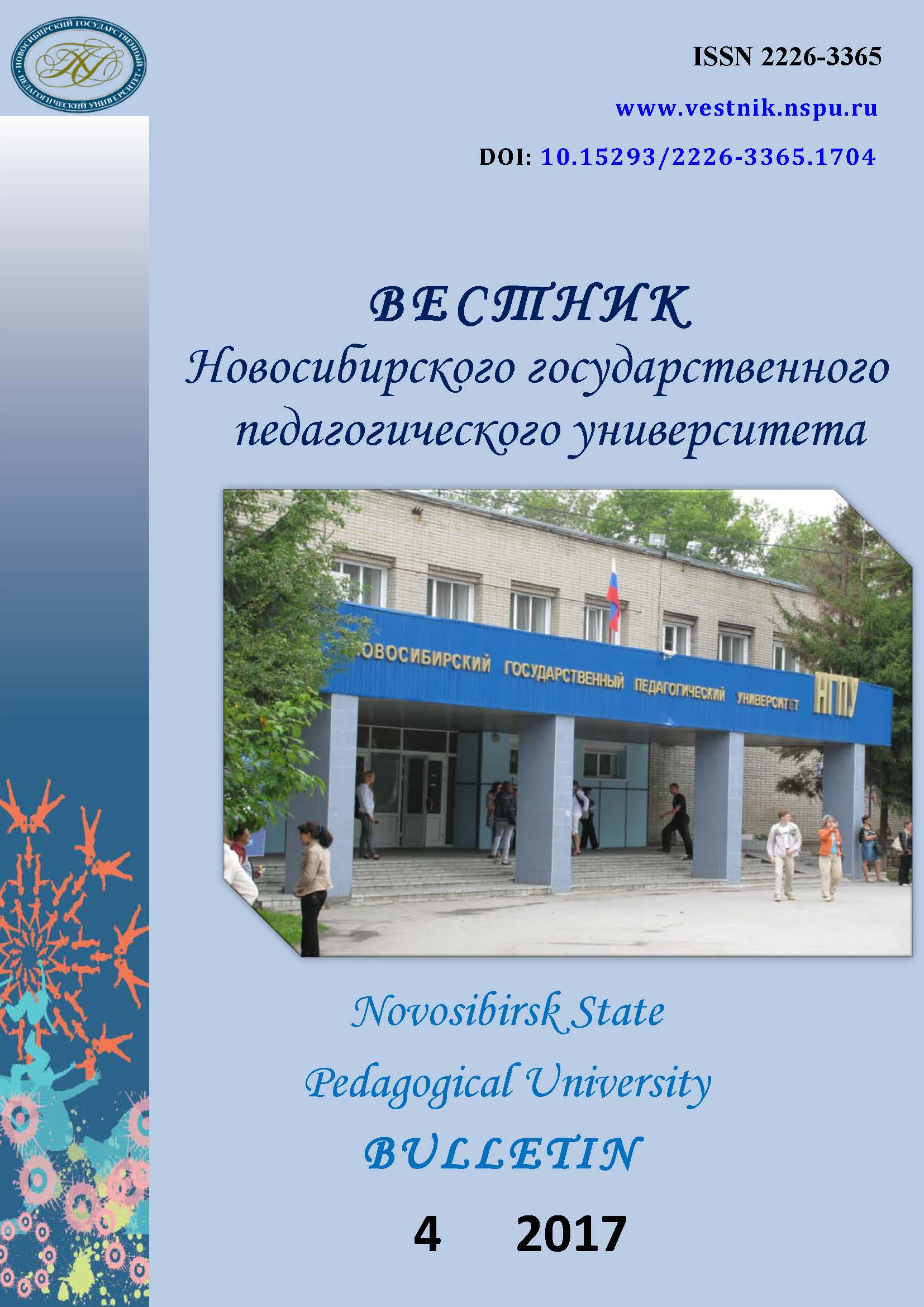Влияние интерязыка на билингвальное поведение учащихся в процессе овладения иностранным языком
The impact of interlanguage on students’ bilingual behaviour during the process of acquiring a foreign language
Author(s): Ekaterina Alekseevna Kostina, Aleksandra Valerievna Hackett-Jones, Nina Vitalievna BagramovaSubject(s): Language acquisition, School education
Published by: Новосибирский государственный педагогический университет
Keywords: Interlanguage; Intermediate language system; Latent psychological structure; Interference; Overgeneralization; Fossilization; Languages comparative analysis; Linguistic errors; Learners psychological
Summary/Abstract: Introduction. The article presents an overview of the major ideas of contemporary foreign and Russian researchers on the issue of the speech mechanism formation of a foreign language learner. The authors aim to identify effective synergetic ways of employing linguistics, psycholinguistics and the methodology of foreign language teaching that can improve the efficiency of the language learning process. The authors note that, despite a number of research papers on the subject, published both in Russia and abroad, the science still lacks a clear-cut definition of this phenomenon, and its role in the process of foreign language acquisition is not stated. Thus the research problem of the paper is to study the intermediate language system in the speech mechanism of a bilingual acquiring a foreign language at a given stage. The purpose of the study is to determine the nature and the status of an intermediate language system and its role in foreign language acquisition, and to find out the ways of optimizing the process of foreign language teaching based on the data obtained. In line with the purpose set, the following research objectives were identified: 1) based on the analysis of research literature on the issues in question, to clarify the naming of the intermediate language system and define its nature; 2) to examine the component structure of the interlanguage; 3) based on the integration of data from linguistics, psycholinguistics, and psychology, to determine techniques that influence the dynamics of interlanguage development that can contribute to improving the effectiveness of the teaching process. Materials and Methods. The methods employed in the current research combined the analysis of research literature in the fields of linguistics, psycholinguistics, methodology of foreign language teaching, psychology on the issues under study, the contrastive and comparative analysis of languages involved in the speech mechanism of a bilingual, the method of integrating psychological, psycholinguistic, and linguistic data. Results. Some authors show skepticism with regard to the existence of the third language system in a bilingual setting. The article presents argumentation to prove the systemic character of this phenomenon, which results in defining the third language system as an intermediate system that psychologically combines three linguistic systems (native language, the third language system, the target language), and represents a continuum of certain changes. This continuum is dynamic in its nature, and consists of a series of approximate systems, each of which consistently and increasingly approaches the target language. All learners of foreign languages show certain deviations from the norm, that is, language mistakes, the existence and nature of which enable the teacher to evaluate the student’s progress in learning the language. Conclusion. The article explores such a relevant phenomenon for the methodology of foreign language teaching as fossilization, which manifests itself in the interlanguage behavior of a bilingual as a result of the summation of five central processes that constitute the latent psychological structure of the individual. Fossilization is interpreted as a phenomenon known as typical persistent errors as opposed to occasional mistakes. The authors analyze the main characteristics of fossilization, such as its dynamism and stability that make the research subject of the theory of speech errors. Based on the analysis and integration of linguistic, psycholinguistic and psychological data, the authors develop methodological recommendations for optimizing the foreign language teaching process. It is concluded that the interlanguage is a complex dynamic system that continually accompanies the process of developing bilingualism and is based on the laws of linguistics, psychology and psycholinguistics. Studying the nature of this system can greatly enhance the efficiency of the process of foreign language acquisition.
Journal: Вестник Новосибирского государственного педагогического университета
- Issue Year: 7/2017
- Issue No: 4
- Page Range: 93-107
- Page Count: 15
- Language: English

